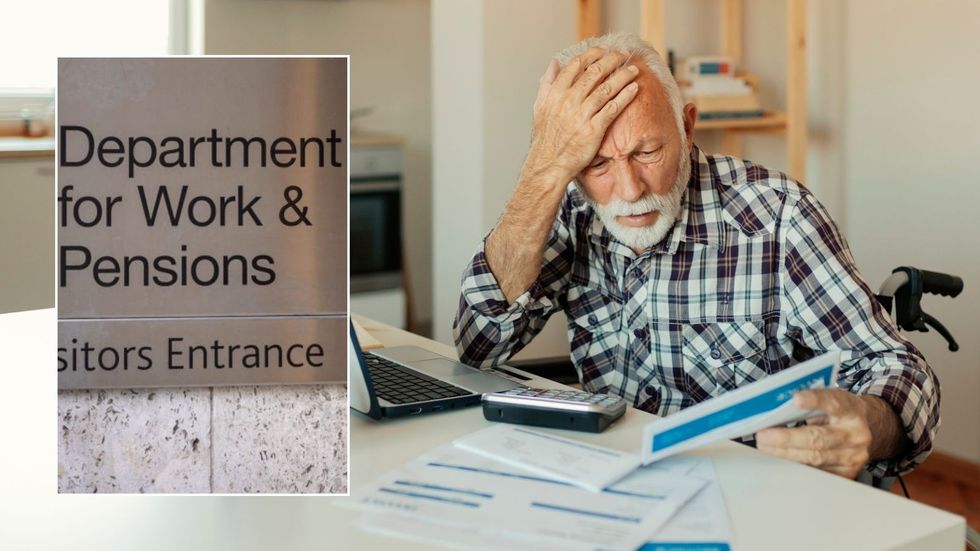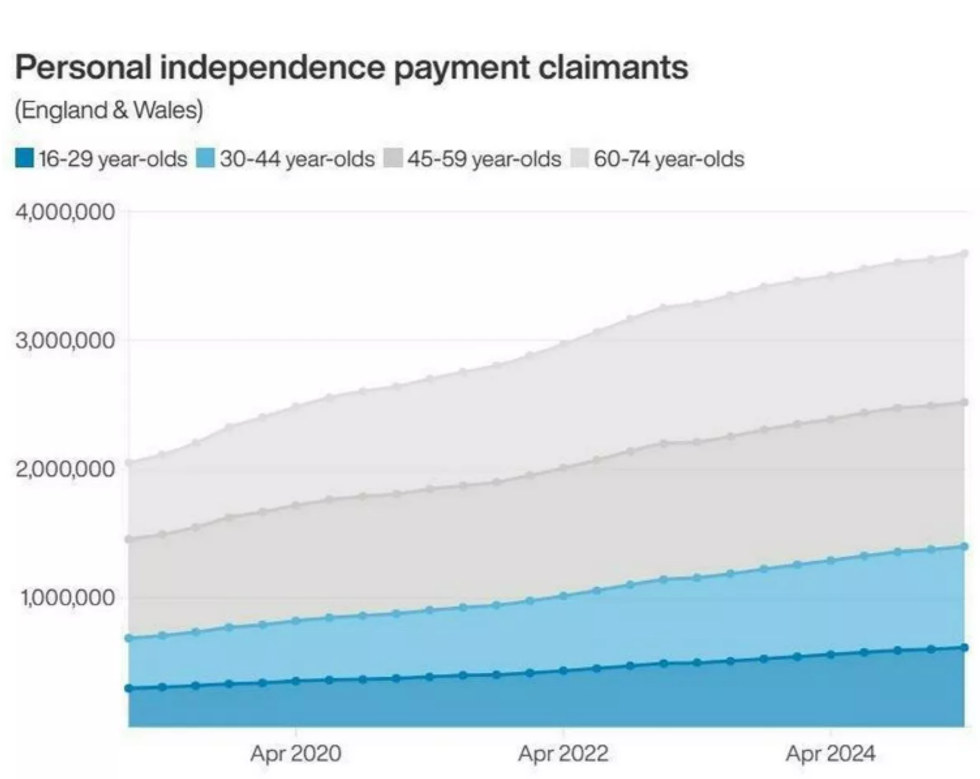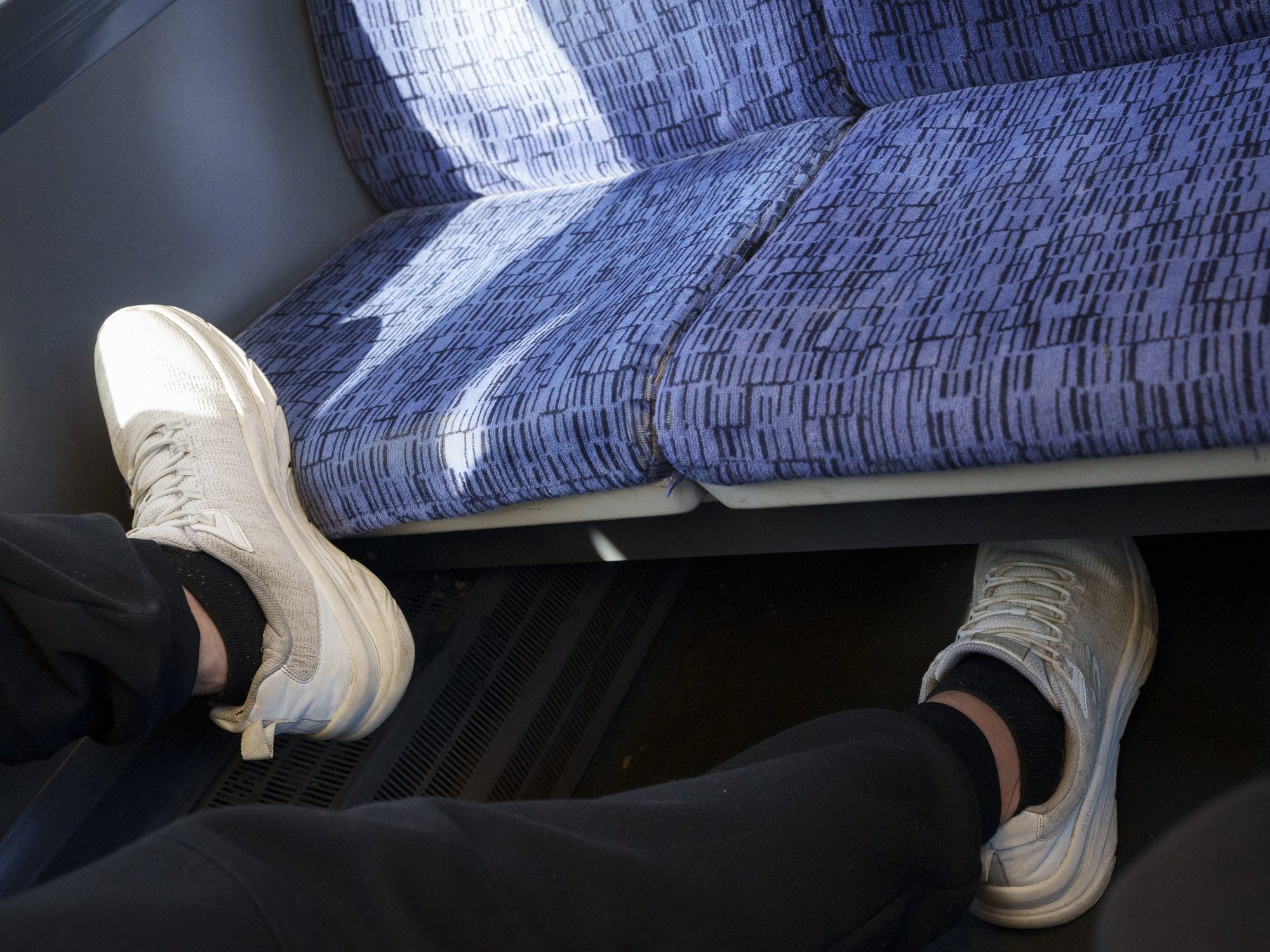DWP benefit crackdown to see 800,000 PIP claimants lose £4,500 a year and 'stop thousands from working'

Dr Renee blasts sickness benefits study which reveals 'staggering' cost to Britons |
GBNEWS

Plans for benefit cuts will affect over three million households
Don't Miss
Most Read
Government welfare reforms could see around 800,000 people lose their Personal Independence Payment (PIP), with each set to forfeit an average of £4,500 a year by 2029/30.
The changes form part of the Welfare Bill introduced to Parliament this week.
The Universal Credit and Personal Independence Payment Bill tightens eligibility for the daily living component of PIP. Claimants will now need to score at least four points on a single daily living activity to qualify.
Ministers say the reforms, which are expected to save £5 billion, are aimed at curbing rising welfare costs and supporting more people into work. The bill also reduces the health element of Universal Credit for new claimants to £50 a week from April 2026.
However, unions have warned of serious consequences. A Unison survey found that three-quarters of those receiving PIP believe losing the benefit would affect their ability to work.
The findings show that three in five respondents use the payment for travelling to their workplace. A similar proportion spend it on treatments including physiotherapy and counselling.
Two-thirds of survey participants said they relied on the money for easily prepared food. Others reported using the funds to pay for medication, carers and cleaners.
 DWP to see thousands of PIP payments cut | GETTY
DWP to see thousands of PIP payments cut | GETTY A nurse from Bristol told the union her payments help cover household bills after chronic fatigue condition ME forced her to reduce her working hours. She warned that without PIP, she would need to take on extra hours and "most likely end up too sick to work at all."
An impact assessment published by the Department for Work and Pensions yesterday outlines the scale of the proposed changes.
It estimates that by 2029–30, an additional 250,000 people will fall into relative poverty as a result of the reforms, including 50,000 children.
The assessment also reveals that 3.1 million families with a disabled member would lose an average of £1,730 a year under the proposals.
Meanwhile, 1.8 million families with a disabled member would gain £560 per year, and 1.9 million families without a disability would gain £290 annually.
The report acknowledges that its estimates don't account for the £1 billion the Government plans to invest in helping disabled people and those with long-term health conditions into work.
The Government has announced a 13-week transitional protection period for existing claimants affected by the PIP changes, including those who lose eligibility for Carers Allowance and the carer's element of Universal Credit.
Work and Pensions Secretary Liz Kendall said: "This will give people peace of mind, while also fixing our broken social security system so it supports those who can work to do so while protecting those who cannot - putting welfare spending on a more sustainable path to unlock growth as part of our Plan for Change."
The transitional cover is described as one of the most generous ever, more than three times the length of protection provided during the transition from DLA to PIP.
Additionally, 200,000 individuals with the most severe and permanently disabling conditions will be protected from future Universal Credit reassessments. These individuals will receive the higher rate of UC health top-up of £97 per week.

A graph showing personal independence payment claimants in England and Wales, by age group
|PA Graphics/Press Association Image
Kendall said: "Our social security system is at a crossroads. Unless we reform it, more people will be denied opportunities, and it may not be there for those who need it."
She highlighted that PIP awards have more than doubled since the pandemic, rising from 13,000 monthly to 34,000 monthly. This represents approximately 1,000 people signing on to PIP daily, roughly equivalent to the population of Leicester joining annually.
The surge has been largely driven by anxiety and depression claims, which have more than tripled from 2,500 monthly in 2019 to 8,200 monthly in 2023.
Christina McAnea, Unison general secretary said: "Going after the most vulnerable in society is in no-one’s interests. Disabled people are not shirkers or scroungers.
"All too often they want to work and they rely on the social security system to give them the support to do so. Stopping people from working won’t grow the economy. If ministers really want to encourage more people back into jobs, they need to make sure work pays.
 Liz Kendall has defended the welfare reforms, insisting she will press ahead with measures to cut the welfare bill despite growing opposition | GETTY
Liz Kendall has defended the welfare reforms, insisting she will press ahead with measures to cut the welfare bill despite growing opposition | GETTY"That means breaking down the barriers preventing disabled people from accessing work, and going after the employers paying poverty wages."
Kendall has set out the proposals amid a political battle, with the Government facing opposition from dozens of Labour MPs who are reluctant to back the cuts.
The reforms represent one of the most significant changes to disability benefits in recent years, with widespread implications for vulnerable groups across Britain.
The Welfare Reform Bill is aimed at reducing the number of working age people on sickness benefits. It's supposedly aimed at encouraging more people back into work - but one of its flagship tools to carry that out is through benefits cuts.
More From GB News










